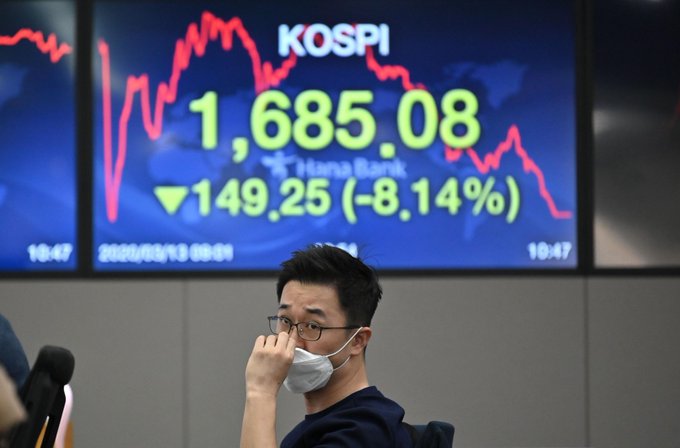There have been warnings for several years that world leaders would find it hard to manage a new global crisis in today’s more confrontational, protectionist and nativist political environment.
An infectious disease outbreak has long been a top national security risk in several countries, but the speed and extent of Covid-19’s spread and the scale of its social and economic impact has come as an enormous and deeply worrying shock.
This pandemic is not just a global medical and economic emergency. It could also prove a decisive make-or-break point for today’s system of global political and economic cooperation.
This system was built up painstakingly after 1945 as a response to the beggar-thy-neighbour economic policies of the 1930s which led to the Second World War. But it has been seriously weakened recently as the US and China have entered a more overt phase of strategic competition, and as they and a number of the other most important global and regional players have pursued their narrowly defined self-interest.
Now, the disjointed global economic response to Covid-19, with its enormous ramifications for global prosperity and economic stability, has blown into the open the urgent need for an immediate reaffirmation of international political and economic cooperation.
What is needed is a clear, coordinated and public statement from the leaders of the world’s major countries affirming the many things on which they do already agree, and some on which they should be able to agree.
In particular that:
- they will give the strongest possible support for the WHO in leading the medical response internationally;
- they will be transparent and tell the truth to their peoples about the progress of the disease and the threat that it represents;
- they will work together and with the international financial institutions to provide businesses, particularly SMEs, and individuals whatever support they need to get through the immediate crisis and avoid long-term damage to the global economy;
- they will ensure the financial facilities for crisis support to countries – whether at global or regional level – have whatever resources they need to support countries in difficulty;
- they will avoid new protectionist policies – whether in trade or finance;
- they commit not to forget the poor and vulnerable in society and those least able to look after themselves.
Such a statement could be made by G20 leaders, reflecting the group’s role since 2010 as the premier forum for international economic cooperation.
But it could be even more appropriate coming from the UN Security Council, recognising that Covid-19 is much more than an economic challenge; and also reflecting the practical fact, in a time when international travel is restricted, the UNSC has an existing mechanism in New York to negotiate and quickly agree such a statement.
A public statement by leading countries could do a great deal to help arrest a growing sense of powerlessness among citizens and loss of confidence among businesses worldwide as the virus spreads.
It could also set a new course for international political and economic cooperation, not just in relation to the virus, but also other global threats with potentially devastating consequences for economic growth and political stability in the coming years.
























 Jim O’Neill
Jim O’Neill








